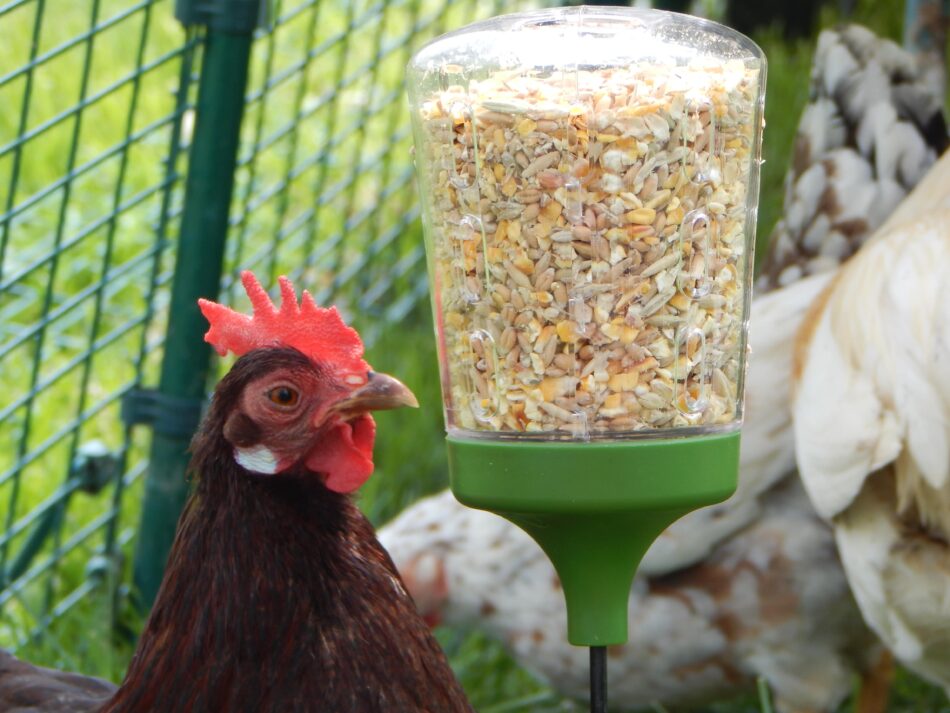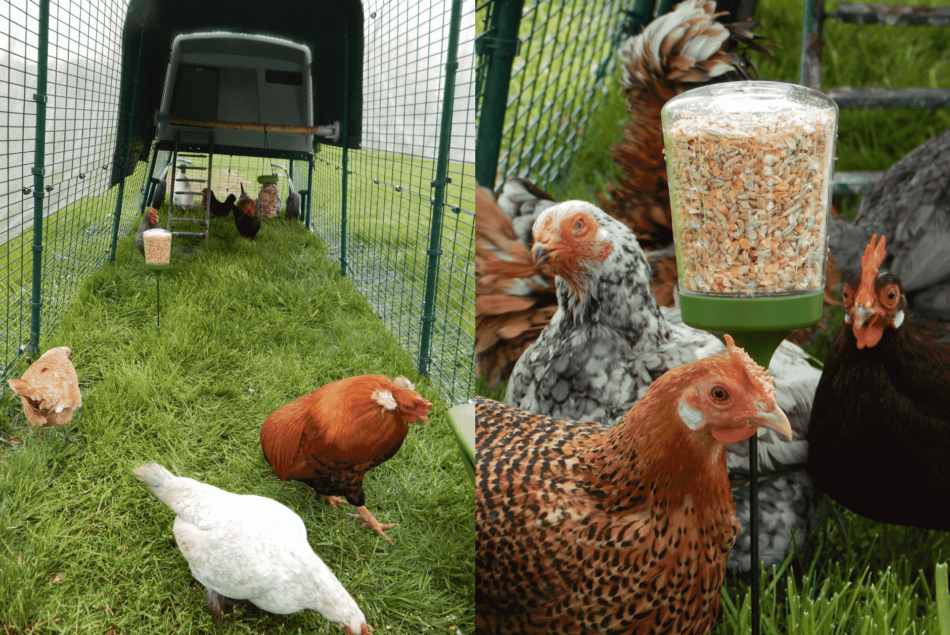What is chicken math?
Rose is a chicken fanatic who’s been building her poultry empire since the tender age of thirteen. As an adult, she now turns her extensive poultry knowledge into how-to’s and guides for other chicken lovers, both young and old. Today, Rose owns and runs littleonionfarm.org, where she writes about self-sufficient lifestyles and shares her life on her Pittsburgh, PA, USA homestead.
Many people consider chickens to be the “gateway drug” to self-sufficient living, and for good reason. Chickens are easy to keep, easy to acquire, inexpensive (at least as far as livestock goes), and come with a variety of benefits. It stands to reason, then, that most chicken owners eventually get the itch to expand their flock once it’s established. This well-known phenomenon has come to be fondly known as “chicken math.”
Of course, some backyard chicken owners – myself included – don’t just stop with chicken math. Eventually, it becomes garden math, quail math, duck math, and then you end up with a homestead (I have no regrets).
Anyway, why would you want to expand your chicken flock? What kinds of benefits do chickens provide that would make you want more? And what can you do to prepare for when chicken math inevitably strikes?
Why chicken math?
Why do so many people end up buying chickens, only to end up expanding their flock later? I usually see a few recurring culprits that people fall victim to. The one that got me was the huge variety of chicken breeds available for us to enjoy. Chickens come in just about every shape, size, and color imaginable, and different breeds often have different personalities, too. My Golden Penciled Hamburg hen, for example, is on the flighty side – she’s not a cuddler – but she loves scratch grains with a passion, and has a particular appreciation for my Poppy Peck Toy.
Of course, the same things that make chickens a “gateway drug” also make expanding your flock easy – sometimes too easy. I started with a small flock of just eight hens when I was a child, which quickly became twelve hens… which then became a second chicken coop, and fifteen more chickens, and a few roosters… (you get the picture).
That being said, chicken math isn’t always a bad thing, as long as your birds (and you) continue to be happy and healthy. Your flock can become quite large before it becomes difficult, time-consuming, or expensive to care for. The cost of owning chickens does go up somewhat as you get more – especially food and housing costs – but I find that, even with a large flock, chickens’ cost of care exists in a “sweet spot” that makes them attractive for both experienced homesteaders and newbies alike.
Finally – on a more specific note – one of the most common reasons I see fellow chicken keepers expanding their flocks is because they want colorful eggs (or more eggs in general). While each hen will only lay one color egg her entire life, different hens can lay eggs in chocolate brown, medium brown, light tan, bright blue, sage green, dark olive, and, of course, white. Some hens even lay eggs verging on pale pink or dusky purple, but the exact color is heavily dependent upon each hen’s breed.
Chicken benefits (besides eggs)
The usual backyard chicken flock provides a few obvious benefits, the main two being eggs and meat. Many chicken keepers also enjoy the companionship and entertainment that their chickens offer. However, that’s not all there is to chickens – not by a long shot!
My main chicken coop is an Eglu Cube with wheels, so I move it around my yard to keep my coop cleaning duties minimal. However, I make sure to save any droppings from the enclosed portion to use for compost. Chicken droppings make a fantastic garden fertilizer, and even if you don’t plan to use them yourself, I promise that a local gardener will be thrilled to take any extras off your hands. Plus, with mobile chicken coops like the Eglu Cube, any manure that you don’t collect will fertilize your lawn. Your grass will grow back greener and fuller than it was before in places where your chickens have been!
Another lesser-known benefit to owning chickens is reducing your food waste. I care deeply about our planet, but even I end up with food that spoils on the counter or in the fridge from time to time. When that happens, my chickens happily break it down for me. Not only does it stay out of a landfill this way, but it adds variety to their diets and gives them enrichment, too.
Finally, chickens provide important pest and weed control to your backyard, especially if you allow them to free range. While a flock of chickens can’t mow your lawn on its own like a goat or cow might, most chickens will happily eat any critters they find in it, including ticks, grubs, earthworms, crickets, and sometimes even mice or snakes!
How to mitigate chicken math
What can you do to prepare for chicken math before it strikes? The main way is by buying a chicken coop that’s larger than you think you’ll need. For example, if you think you’ll only want four laying hens – a flock that would be small enough for an Eglu Go – consider upgrading to the Eglu Cube instead. This gives you room to add a few more in the future. At some point, you may still need to get a second coop (I know I did), but a larger coop will at least prevent that for as long as possible.
Another way to mitigate the effects of chicken math is by doing thorough research before you establish your first flock. I know it’s tempting to dive right in and order chicks as soon as possible, but I highly recommend taking a while to research breeds, coops, risks, and future plans before you get started. You can also avoid temptation by staying away from feed stores and poultry swap meets, but I find (from experience) that it’s smarter to plan for the inevitable instead of trying to prevent it!
Finally, make sure you’re familiar with any local regulations on flock size and composition in your municipality. I’m not familiar with other countries’ regulations but in the US state of Pennsylvania where I live, most livestock regulations are left up to the county to decide. However, townships and cities sometimes have their own rules for you to follow, too.
Final thoughts
Were you familiar with the concept of chicken math before reading this guide? More importantly, are you prepared for the moment chicken math inevitably strikes your flock? I’m a huge fan of Omlet’s Eglu Cube for newbie backyard chicken owners, so I never hesitate to recommend it – it’s the perfect size and configuration for a good-sized starter flock.
This entry was posted in Chickens



